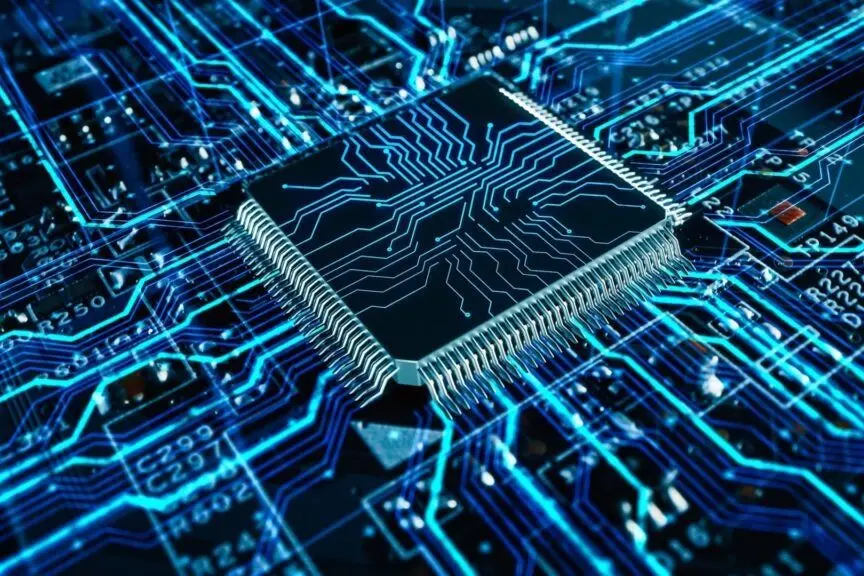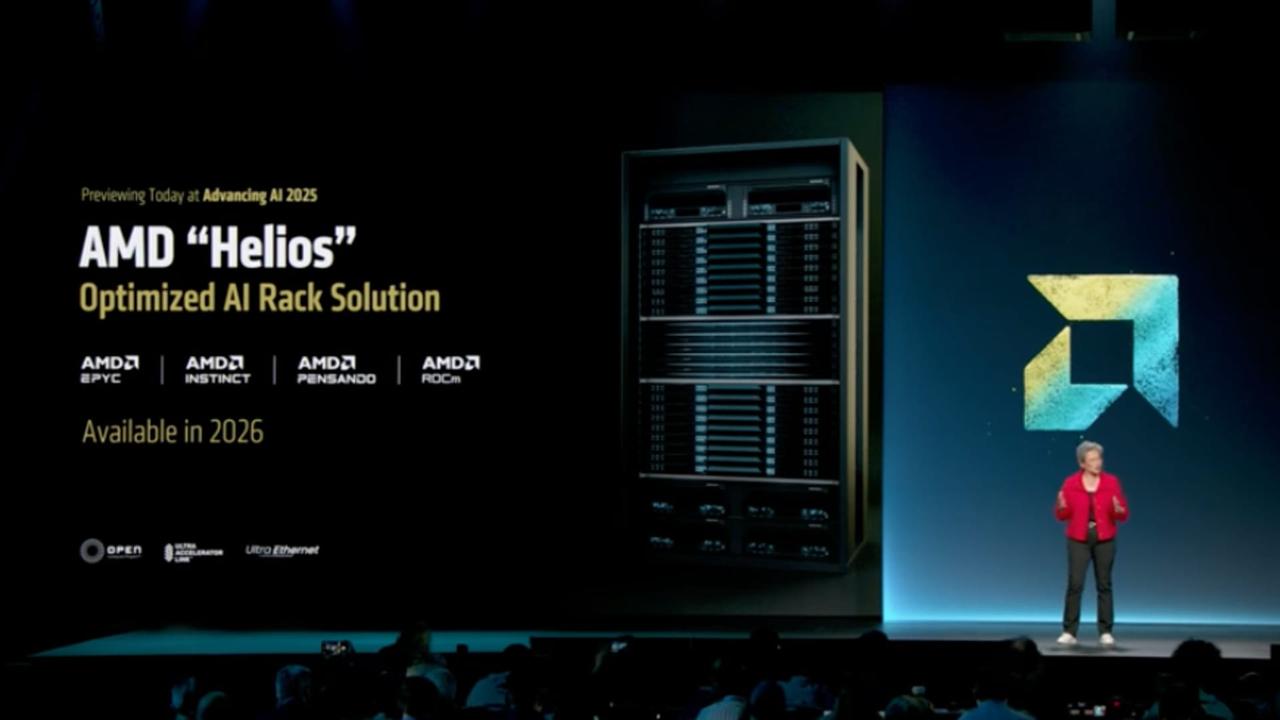Chip Stocks Rebound as OpenAI Inks Massive Deal with Broadcom and US-China Tensions Ease
2 Sources
2 Sources
[1]
Chip stocks bounce on Broadcom, OpenAI deal and easing China tensions
Chip stocks bounced on Monday, clawing back losses from Friday's market rout as OpenAI announced another computing deal with a major chipmaker and U.S.-China tensions eased. OpenAI and Broadcom announced a deal to develop custom artificial intelligence chips. The Sam Altman-led startup has recently inked agreements with Nvidia and Advanced Micro Devices. Broadcom shares bounced 9% on the news. Over the weekend, President Donald Trump tried to calm worries about China in a post on Truth Social, saying it "will all be fine." The VanEck Semiconductor ETF jumped nearly 4%, while Nvidia and AMD rallied more than 3% each. Taiwan Semiconductor and On Semiconductor jumped about 6% each, while Micron Technology rose over 4%. Trump sent markets into a selloff on Friday after he threatened massive tariffs on China in response to the country's latest clampdown on rare earths. He later pledged to levy new tariffs of 100% on China imports starting on Nov. 1 and would also impose export controls on "any and all critical software." The tech megacaps lost $770 billion in market cap on Friday.
[2]
Nvidia, AMD, Marvell, Taiwan Semiconductor Surge After Friday Dip On Trump's China Remarks, OpenAI-Broadcom AI Chip Deal - Broadcom (NASDAQ:AVGO), Advanced Micro Devices (NASDAQ:AMD)
Nvidia (NASDAQ:NVDA), Advanced Micro Devices (NASDAQ:AMD), Marvell Technology (NASDAQ:MRVL), Taiwan Semiconductor Manufacturing Co (NYSE:TSM), and other semiconductor companies rebounded from their Friday selloff amid overall market strength following positive assurances from President Donald Trump over China trade relations. In a Truth Social post, Trump advised against worrying about China, stating that the situation would be fine. He described President Xi as highly respected but experiencing a temporary setback and emphasized that neither leader wants a depression in China. He added that the U.S. aims to help China, not harm it. Also Read: Nvidia's Core Approach Is Enabling Broader AI Industry: Analyst The industry also got a boost from a deal with two significant companies, which have been pivotal in adding value to the sector. OpenAI ramped up its dominance in artificial intelligence with a massive $500 billion chip initiative in partnership with Broadcom (NASDAQ:AVGO). The company behind ChatGPT signed a multibillion-dollar agreement with Broadcom to co-design custom AI chips, forming one of the most extensive semiconductor procurement campaigns ever. The deal, valued between $350 billion and $500 billion, expands OpenAI's total chip capacity plans to over 26 gigawatts -- equivalent to the output of 26 nuclear reactors. OpenAI CEO Sam Altman said the company spent 18 months working with Broadcom to develop silicon optimized for AI inference, the process that powers its AI models. This Broadcom deal complements OpenAI's recent agreements with Nvidia and AMD, further expanding its AI hardware arsenal. In September, OpenAI secured a 10-gigawatt commitment from Nvidia, and in the same month, it added six gigawatts from AMD. Nvidia's involvement includes a $100 billion equity investment in OpenAI, while AMD will provide up to six gigawatts of Instinct GPUs and up to 160 million performance-linked shares, potentially worth $75 billion. OpenAI plans to fund over $1.5 trillion in semiconductor and infrastructure investments over the next decade, including $300 billion in data center expansions with Oracle (NYSE:ORCL). For context, the semiconductor industry has been impacted by intensifying geopolitical tensions between Washington and Beijing, including sanctions on semiconductor technology (including AI technology) by the United States, followed by China's retaliation, which included sanctions on rare earth exports to the U.S. In the first week of October, Nvidia became the first company to reach a $4.5 trillion cap as aggressive Big Tech giants continue to fuel demand for Nvidia's graphics processing units. PHLX Semiconductor Index gained over 34% year-to-date, topping the Nasdaq 100 Index's over 17% returns. NVDA Price Action: NVDA shares were up 2.80% at $188.25 at the time of publication on Monday. Read Next: Nvidia Gains As US Greenlights Major AI Deal With UAE Photo: Shutterstock AMDAdvanced Micro Devices Inc$218.771.80%OverviewAVGOBroadcom Inc$356.389.78%MRVLMarvell Technology Inc$88.383.24%NVDANVIDIA Corp$187.752.51%ORCLOracle Corp$306.754.71%TSMTaiwan Semiconductor Manufacturing Co Ltd$301.747.51%Market News and Data brought to you by Benzinga APIs
Share
Share
Copy Link
Semiconductor stocks recover from Friday's selloff following OpenAI's $500 billion chip deal with Broadcom and reassuring comments from former President Trump about US-China relations. The deal marks a significant expansion in OpenAI's AI hardware capabilities.
OpenAI's Groundbreaking Deal with Broadcom
In a move that has sent ripples through the semiconductor industry, OpenAI has announced a colossal $500 billion chip initiative in partnership with Broadcom. This deal, aimed at co-designing custom AI chips, represents one of the largest semiconductor procurement campaigns in history
2
. The agreement, valued between $350 billion and $500 billion, will significantly boost OpenAI's total chip capacity to over 26 gigawatts – equivalent to the output of 26 nuclear reactors2
.OpenAI CEO Sam Altman revealed that the company spent 18 months collaborating with Broadcom to develop silicon optimized for AI inference, the process that powers its AI models
2
. This partnership complements OpenAI's recent agreements with other major chipmakers, including a 10-gigawatt commitment from Nvidia and a six-gigawatt deal with AMD2
.Market Reaction and Stock Performance
The announcement of the OpenAI-Broadcom deal had an immediate impact on the stock market. Broadcom shares surged by 9% following the news
1
. Other semiconductor stocks also experienced significant gains:- The VanEck Semiconductor ETF jumped nearly 4%
- Nvidia and AMD rallied more than 3% each
- Taiwan Semiconductor and On Semiconductor rose about 6% each
- Micron Technology increased by over 4%
1
This positive trend in chip stocks marks a recovery from Friday's market rout, which saw tech megacaps lose $770 billion in market cap
1
.Easing US-China Tensions
The semiconductor industry's rebound was further bolstered by former President Donald Trump's reassuring comments about US-China relations. In a post on Truth Social, Trump attempted to calm worries about China, stating that the situation "will all be fine"
1
. He described Chinese President Xi as highly respected but experiencing a temporary setback, emphasizing that neither leader wants a depression in China2
.These comments helped ease concerns that had arisen from Trump's earlier threats of massive tariffs on China and potential export controls on critical software
1
. The semiconductor industry has been particularly sensitive to geopolitical tensions between Washington and Beijing, including recent sanctions on semiconductor technology and China's retaliatory measures on rare earth exports2
.Related Stories
OpenAI's Expanding AI Infrastructure
OpenAI's deal with Broadcom is part of a broader strategy to secure and expand its AI hardware capabilities. The company plans to invest over $1.5 trillion in semiconductor and infrastructure over the next decade, including $300 billion in data center expansions with Oracle
2
. This massive investment underscores the growing demand for advanced AI computing power and the critical role of semiconductor companies in meeting this need.The semiconductor industry's performance has been robust, with the PHLX Semiconductor Index gaining over 34% year-to-date, outperforming the Nasdaq 100 Index's 17% returns
2
. This growth reflects the increasing importance of AI technologies and the pivotal role of chip manufacturers in driving innovation in the tech sector.References
Summarized by
Navi
Related Stories
Recent Highlights
1
ByteDance Faces Hollywood Backlash After Seedance 2.0 Creates Unauthorized Celebrity Deepfakes
Technology

2
Microsoft AI chief predicts artificial intelligence will automate most white-collar jobs in 18 months
Business and Economy

3
Google reports state-sponsored hackers exploit Gemini AI across all stages of cyberattacks
Technology








